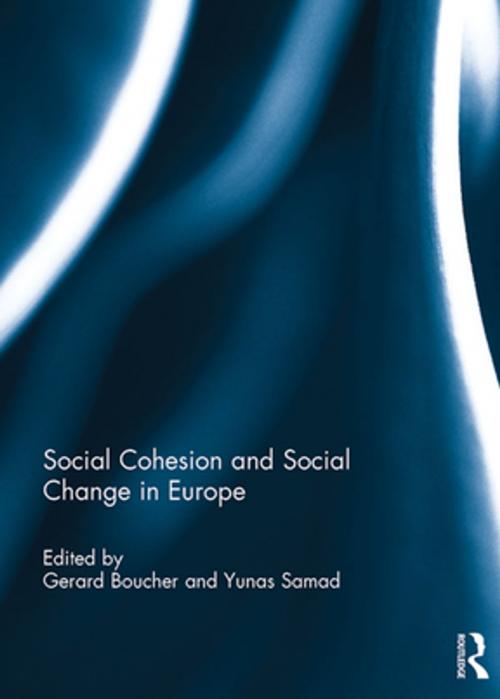Social Cohesion and Social Change in Europe
Nonfiction, Social & Cultural Studies, Social Science, Sociology| Author: | ISBN: | 9781317330677 | |
| Publisher: | Taylor and Francis | Publication: | October 2, 2017 |
| Imprint: | Routledge | Language: | English |
| Author: | |
| ISBN: | 9781317330677 |
| Publisher: | Taylor and Francis |
| Publication: | October 2, 2017 |
| Imprint: | Routledge |
| Language: | English |
Social cohesion has had different meanings for people depending on their background, their interests, where they live in the world, and at what time they lived. In the social sciences, social cohesion is a term used to explain the social and cultural consequences of structural changes related to industrialization and modernity. In the European Union, structural changes which relate to globalization, European integration, the restructuring of welfare states, ageing societies, and transitions from communism, have often led to more insecurity and material inequalities between people. Higher rates of immigration, and issues related to the integration of migrants and their descendants, have also led to anxieties about the preservation of national cultures and identities.
This book argues that perceived crises in social cohesion in Europe have more to do with the consequences of structural change rather than the failure of multiculturalism and immigration. It looks at the relationship between social cohesion and social change in Europe, focusing on the European Union as a whole, and on urban areas such as Paris, France and Bradford, UK. This book was originally published as a special issue of Patterns of Prejudice.
Social cohesion has had different meanings for people depending on their background, their interests, where they live in the world, and at what time they lived. In the social sciences, social cohesion is a term used to explain the social and cultural consequences of structural changes related to industrialization and modernity. In the European Union, structural changes which relate to globalization, European integration, the restructuring of welfare states, ageing societies, and transitions from communism, have often led to more insecurity and material inequalities between people. Higher rates of immigration, and issues related to the integration of migrants and their descendants, have also led to anxieties about the preservation of national cultures and identities.
This book argues that perceived crises in social cohesion in Europe have more to do with the consequences of structural change rather than the failure of multiculturalism and immigration. It looks at the relationship between social cohesion and social change in Europe, focusing on the European Union as a whole, and on urban areas such as Paris, France and Bradford, UK. This book was originally published as a special issue of Patterns of Prejudice.















